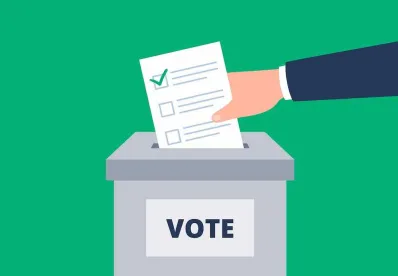This Legal Update will help you navigate through those rough waters involving absentee ballots.
Absentee Voting
No election issue seems to be more of a lightning rod over the past year than absentee voting. While voting absentee has always occurred, this alternative voting option has been thrust into the spotlight due to the COVID-19 pandemic and the public scrutiny onslaught since the 2020 Presidential Election.
Wisconsin has been at the forefront of a variety of conflicts over absentee voting. Presently, a lawsuit is pending before the Wisconsin Supreme Court concerning absentee voting and the use of ballot boxes, which are drop boxes some municipalities used to collect absentee ballots throughout the pandemic. In January 2022, a Waukesha County Circuit Court Judge ruled against the use of ballot boxes; however, the Wisconsin Court of Appeals stayed that Judge’s ruling due to the close proximity of the February 15, 2022, election primary. The Wisconsin Supreme Court then took over the case from the Court of Appeals and, on February 11, 2022, issued a temporary decision allowing ballot boxes for the February 15, 2022, primary but not the April 5, 2022 election. Local officials continue to wait for the Wisconsin Supreme Court’s final decision, which hopefully will provide greater legal direction for absentee ballots.
In the meantime, following are FAQs on the fundamentals for absentee voting.
Who is an absentee elector?
An absent elector is a qualified voter, but who is unable or unwilling to appear in person, at the polling place in his or her applicable ward or election district to vote. An individual can choose to vote absentee for any reason.
What are the qualifications for voting absentee?
Most registered Wisconsin voters can vote absentee by mail. The specific qualifications are: (1) be a U.S. citizen, (2) be at least 18 years old, and (3) have resided in their voting district for at least 28 days.
What is an absentee ballot?
An absentee ballot is used by an absent voter to cast their vote. The ballot is printed and sealed in an envelope, that then needs to be mailed or hand-delivered to the municipal clerk. The municipal clerk will ensure that the absentee ballot is received by the proper polling place on election day, as long as the municipal clerk receives the ballot on time. The law provides specific requirements concerning timeframes regarding valid absentee ballots – those details are beyond the scope of this article and it is encouraged to consult with legal counsel for further direction.
Do the same absentee voting rules apply to military and overseas voting?
No. Military and overseas voters have special rules as well as additional options for voting. For instance, they can access their absentee ballot online.
How can a voter request an absentee ballot?
An absentee ballot can be requested in the following ways: by mail, by email, online, by fax, or in person. To find out more specific information to your voting district, you should go to your municipality’s website.
What about the use of drop boxes for an absentee ballot?
There is substantial debate currently regarding the use of ballot drop boxes for absentee ballots. It is strongly encouraged to communicate with legal counsel concerning this issue. However, given the pending Waukesha County Court case referenced above and in consideration of the WEC’s withdrawal of its guidance in that case, the safest approach would be to refrain from using a drop box until further direction from the Wisconsin Supreme Court.
This information is provided as a review of the fundamental requirements when it comes to balloting. Ideally, this information will be available for reference when basic questions or conflicts occur for a quick resolution. Nevertheless, more complicated questions may arise and it is strongly encouraged to reach out to your legal counsel for timely answers as these issues develop.



 />i
/>i
